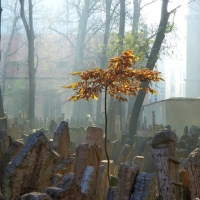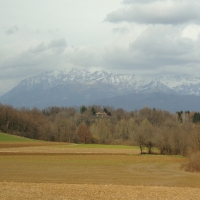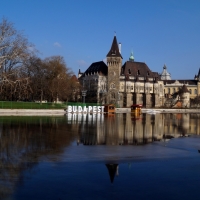For all the stunning church music Antonio Vivaldi composed, he has never gotten to writing a proper passion oratorio. Fortunately, he did compose a Stabat Mater in 1721, the seventh movement of which we can now listen to. Performed by Philippe Jaroussky, because after 8 years of studying the long gone aesthetics of past societies, I only enjoy my soprano arias if sung by males.
music for Maundy Thursday – Francesco Antonio Rosetti: Jesus in Gethsemane
Today’s music is the oratorio Jesus in Gethsemane by Francesco Antonio Rosetti, also called Franz Anton Rösler, a Classical era composer of Bohemian origin who was found worth of mentioning beside names as Mozart and Haydn by Charles Burney, the famous English travelling music historian of the late 18th century. Rosetti’s life bears a slight resemblance with that of Mozart: they both were successful (yes, Mozart was successful during his lifetime, everything else you hear is nothing but urban legend), didn’t have the less feeling for money and died young.
I intended to post his other oratorio, Der sterbende Jesus, which was a big hit in Rosetti’s days, but, well, it seems that YouTube is not the place where one goes for historical performance practice research. I should better look for videos with titles like “Adorable 6 Year Old playing Jingle Bells on the recorder while belly dancing in a living room in Oklahoma city” if I need some sense of achievement.
P.S.: You can listen to last year’s Maundy Thursday post, Agonia di Cristo (Le Ultime Sette Parole) from Niccolò Jommelli, here.
P.S.2.: Just a reminder: whether Jommelli’s nor Rosetti’s music fits my own category of high Baroque. Maundy Thursday makes me crave Classical harmonies.
365/96
Today’s music is the first movement of the oratorio Agonia di Cristo (Le Ultime Sette Parole), based on the seven last words of Christ, written by Niccolò Jommelli, one of the most prominent composers of the Italian galant opera. Its style is a bit too late for fitting in the category of baroque passion music, but oh, do I love the obligato bassoon part!
365/95
Well, I guess, today’s music sort of fails to match my own criteria, because no one would dare to call the French composer François Couperin, court organist, composer and harpsichord teacher of the Sun King, Louis XIV of France, a musician of small importance. He wrote a number of virtuoso and charming harpsichord pieces and some other amazing instrumental and vocal music, and his harpsichord tutorial, L’art de toucher le clavecin, published in 1716, is really worth reading. This very piece of his, Troisième Leçon de Ténèbres pour deux voix, originally written for the Wednesday evening liturgy before Maundy Thursday, was even featured in the movie Tous les matins du monde, with Gérard Depardieu starring in the role of the old Marin Marais. Composing Leçons de ténèbres (Lectures of the Darkness) upon the text of the Lamentations of Jeremiah for the late night services of the three holy days before Easter was a huge trend in the late 17th – mid 18th century French music, and it resulted some really moving compositions. This version of Couperin is one of the most beautiful pieces of baroque vocal music I know (and well, I do know a bit about baroque music, hm).








